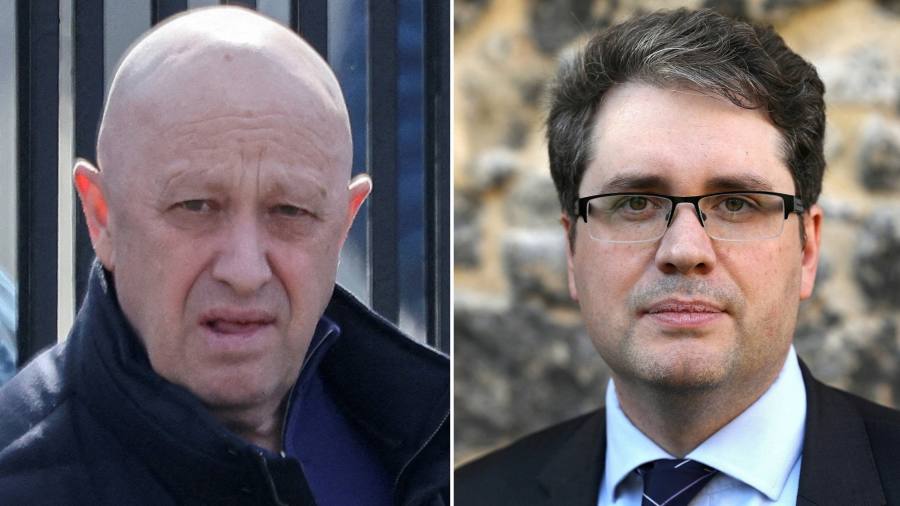
Receive free Law updates
We’ll send you a myFT Daily Digest email rounding up the latest Law news every morning.
Wagner Group chief Yevgeny Prigozhin would still be able to pursue his libel case in London against journalist Eliot Higgins despite the government’s crackdown on so-called “SLAPPs”, the Labour party has claimed as it vows to eliminate the controversial use of such lawsuits.
The Conservative government is to give judges in England new powers to throw out litigation designed to intimidate the opponents of wealthy individuals and companies into silence, called “strategic lawsuits against public participation”, through amendments to the economic crime bill.
But critics have warned the reforms are limited and will, at least initially, only relate to certain cases involving economic crime. The Index on Censorship campaign group called the changes a “stepping stone rather than a final destination”.
Steve Reed, shadow justice secretary, said the amendments would still allow a large proportion of such cases to go ahead, for example, those involving media allegations about sexual harassment, intimidation and housing and environmental issues.
He told the Financial Times that a Labour administration would go further than the government by introducing legislation to stop Russian oligarchs and other super-wealthy figures silencing their critics.
Reed said that strategic lawsuits had enabled individuals to “weaponise” their wealth to intimidate journalists into silence.
The Ministry of Justice has said the curtailment of SLAPPs, when they relate to information about economic crime, is only the “first step” in a broader clampdown and that it was “committed to tackling all forms of this nefarious practice”.
The government has said it plans to set out further legislation, covering areas beyond economic crime “when parliamentary time allows”.
The government’s proposals would not have prevented Prigozhin from bringing a libel claim in 2021 against Higgins, founder of the Bellingcat website that exposed his links to the Wagner Group, which at the time Prigozhin denied existed.
British lawyers were granted a Treasury licence to accept payment from Prigozhin, a Russian mercenary leader and former close ally of Russian president Vladimir Putin, allowing him to circumvent sanctions and fight his legal case.
The case against Higgins was eventually struck out owing to Prigozhin’s failure to comply with court orders.
“Rishi Sunak [prime minister] must explain why his government is on the side of Russian war criminals, not British journalists and campaigners,” said Reed.
“Labour will crack down on the powerful abusing their wealth to gag people from asking legitimate questions. We will show that the freedom to investigate and speak truth to power is not for sale.”
Susan Coughtrie, director of the Foreign Policy Centre think-tank and co-chair of the UK Anti-SLAPP Coalition, said she was concerned about the current “jigsaw approach” to restrictions on aggressive legal tactics.
Coughtrie said the most effective way to stop abusive litigation was through “a standalone law”: “It’s definitely what’s needed and would be critical to ensure universal protection against SLAPPs, regardless of the subject matter.”
The MoJ said: “This government has taken unprecedented action to stamp out the abuse of our legal system by wealthy individuals so we can better protect the values of freedom of speech that underpin our democracy.
“Our reforms will ensure that journalists can shine a light on the scourge of economic crime and we remain committed to legislating to cover all forms of SLAPPs as soon as possible.”